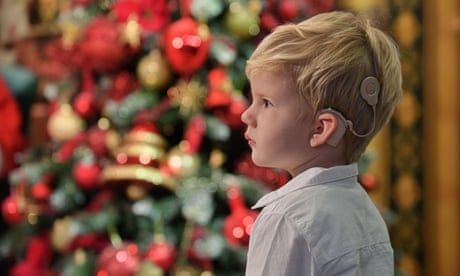
Parents of a deaf child should not feel pressured to choose between implants and signing, writes Dr Wyatte Hall, while Simon Gair agonised over implants for three of his children. Plus letters from Ruth Holt and Jenny Froude
As a deaf researcher focused on language deprivation among deaf individuals, I am often asked about cochlear implants and their role in the lives of deaf children (The cochlear question: as the parent of a deaf baby, should I give her an implant to help her hear?, 11 December). While cochlear implants are a technological tool that provides access to sound, the critical issue is not the implant itself, but the decision to exclude signed languages from a deaf child’s upbringing.
Language is a fundamental human right and the foundation of cognitive, social and emotional development. For deaf children, access to a visual language – such as American Sign Language or British Sign Language (BSL) – is essential, particularly in the early years when the brain is most receptive to language acquisition. Without this access, many deaf children can face significant delays in language development, which leads to lifelong challenges in education, employment and mental health.
Continue reading...